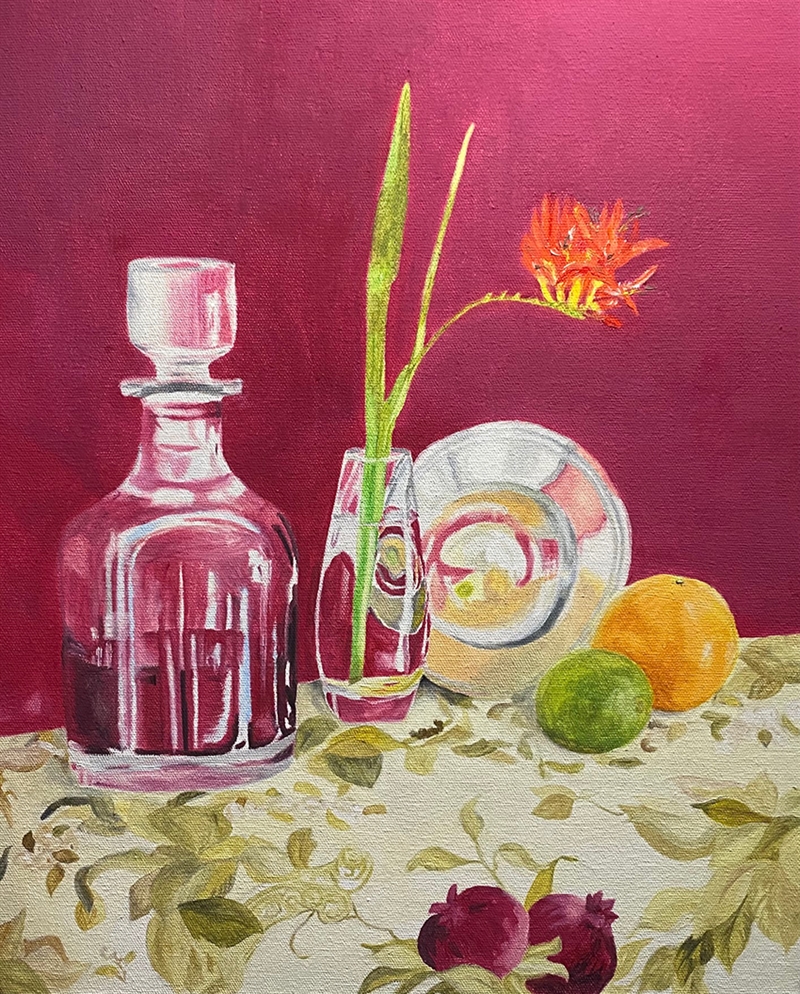Two-time SCAD patient Giedre Calverley has been using art to maintain her health and wellbeing since her first SCAD in 2018. In February this year, she decided to help other SCAD patients do the same.
She told us that after her second SCAD in January she attended a webinar where Professor Neil Greenberg talked about occupational stress in the caring professions and measures that have been proved to help prevent lasting negative effects on health.
“The idea of psychological PPE – having a plan that includes personally effective things for staying well, ready for possible stresses in the future, and peer-support groups – having a group of people who share the same experience and help each other with problem-solving and encouragement – gave me the idea to start a creative group with SCAD ‘survivors’,” Geidre explains.
“I experienced the tremendous supportive power of a good peer group in my professional life over the years, and wondered if I could combine both elements that are instrumental in my own health and wellbeing, for the benefit of others – my peers with SCAD experience. I was keen to make connection with other human beings and support each other by sharing creativity together.”
So in February, she invited members of the SCAD UK & Ireland Survivors Facebook group to sign up for weekly creative and conversation sessions on Zoom.
She told the group: “The purpose is to have a peer group where we could ‘make sense’ of changes in our lives caused by SCAD in a safe, facilitated creative space. Similarly to peer groups in caring professions where people deal with difficult or even traumatic events by mutual reflection and support, this could be a confidential survivors’ group that helps with the same.”
She added: “What qualifies me? I’m a doctor who worked in the NHS for 15 years before my first SCAD event, obtained a Lifestyle Medicine Physician Diploma afterwards and started using visual art (with no previous experience or special ability) for my own healing with very positive results. I recently had my second SCAD and with that – a strong desire to connect with my SCAD peers in a positive, supportive and meaningful way.”
Beat SCAD Trustee, Sarah Coombes said, “Initiatives like this can be incredibly valuable for the recovery of SCAD patients. The chance to tell your story in a safe space. To be heard by others who know what you are going through. To be able share your experiences of life after a major health event and perhaps learn to put what happened into some kind of perspective. And, ultimately, to gain self-awareness and insight – it’s really powerful.”
Beat SCAD is very grateful to Giedre for sharing her expertise and encourage any SCAD patients who feel they could help to get in touch as there are many different ways that you can volunteer to support the work of Beat SCAD.
“Remember, it’s important to focus on healing ourselves first,” said Sarah, “but once we feel strong enough, giving something back to the community that has supported us can be a wonderful experience that further strengthens our own recovery as well as paying forward the support we received to help those who come after us.”

